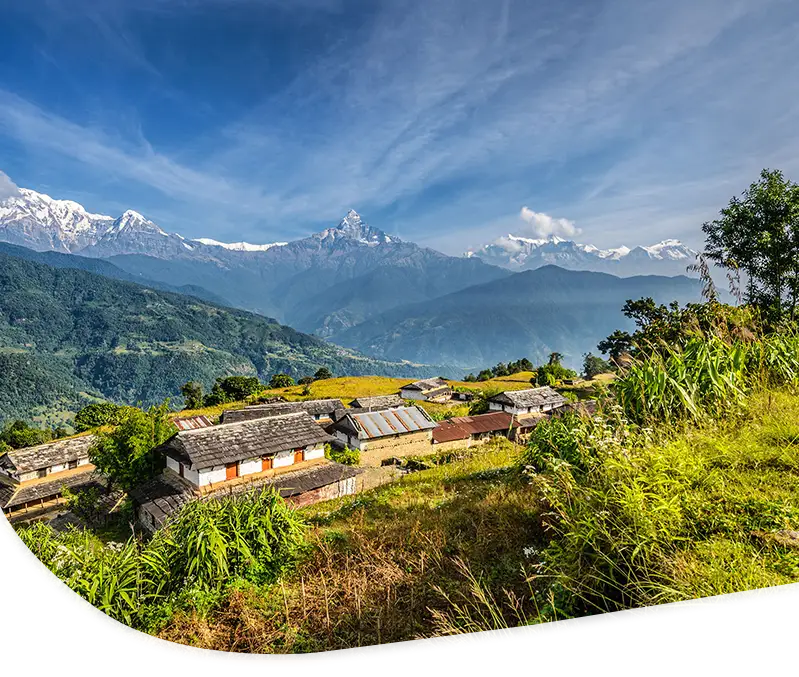Labor Laws in Nepal
- Annual Leave: 18 days
- Maternity Leave: 14 weeks
- Public Holidays: 25
- Workweek: 48 hours per week.

Get everything you need to hire talent in Nepal. Download our comprehensive guide for hiring in this expanding market.
Capital:
Kathmandu
Language:
Nepali
Currency:
Nepalese rupee
Please enter the following information:
Nepal has a progressive income tax with rates from 0% to 36%.
The normal VAT rate is 13%
In Nepal, employers and employees are required to contribute to the Social Security Fund (SSF) to provide social security coverage. The contribution rates are as follows:
Employer Contribution
Employee Contribution
There is one visa to legally work in Nepal:
Work Visa:
Documentation Required:
Setting up a company in Nepal can be expensive and complex. Global Expansion simplifies your entry into this market.
We handle hiring, HR, and payroll while ensuring compliance with local regulations, all without establishing a local entity.
Our Nepal Employer of Record (EOR) solution lets you focus on your business growth.